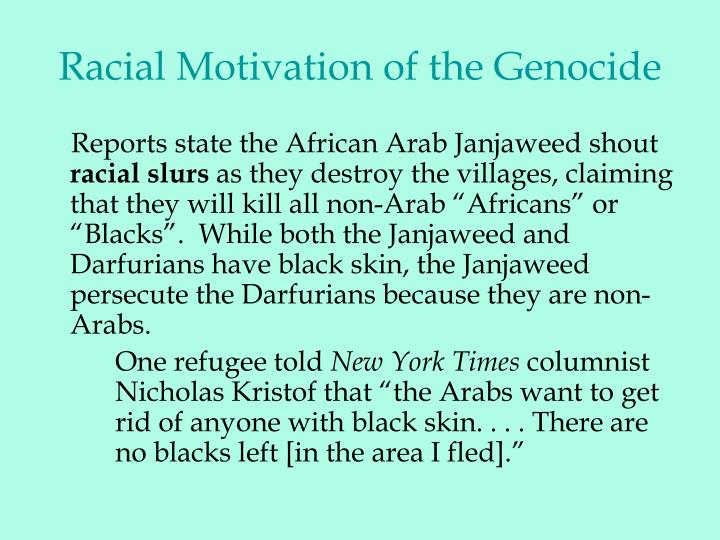Regarding the first cartoon, I've often marvelled at how some people who know that Colin Powell et al. spread falsehoods in the run up to the 2003 US invasion of Iraq seem to be taken in so easily by these liars when it comes to Darfur.
The second cartoon, I think, speaks to the false dichotomy of black/African vs. Arab that is frequently propagated in Western discourse. For example, in an
April 27, 2007, NPR report Gwen Thompkins distinguishes between "black rebel forces" and "government-sponsored Arab militias." The accompanying text on the
National Public Radio web site speaks of "Tension between the region's African farmers and Arab pastoralists" and says "People in Darfur refer to themselves as 'black,' and many Darfuris say that the dispute with the Arab-dominated government in Khartoum is ethnically based." An
NPR report the day before ("U.N. Aid Chief Tours Darfur's Refugee Camps") was just as bad describing the fighting as between "African rebels and Arab militias."
However, all or nearly all parties to the conflict in Darfur are Africans, black, and Muslim and the question of Arab identity is, by no means, a simple matter either. As the Washington Post's East Africa bureau chief Emily Wax writes in "
5 Truths About Darfur" (emphasis added):
Everyone is black
Although the conflict has also been framed as a battle between Arabs and black Africans, everyone in Darfur appears dark-skinned, at least by the usual American standards. The true division in Darfur is between ethnic groups, split between herders and farmers. Each tribe gives itself the label of "African" or "Arab" based on what language its members speak and whether they work the soil or herd livestock. Also, if they attain a certain level of wealth, they call themselves Arab.
Sudan melds African and Arab identities. As Arabs began to dominate the government in the past century and gave jobs to members of Arab tribes, being Arab became a political advantage; some tribes adopted that label regardless of their ethnic affiliation. More recently, rebels have described themselves as Africans fighting an Arab government. Ethnic slurs used by both sides in recent atrocities have riven communities that once lived together and intermarried.
"Black Americans who come to Darfur always say, 'So where are the Arabs? Why do all these people look black?' " said Mahjoub Mohamed Saleh, editor of Sudan's independent Al-Ayam newspaper. "The bottom line is that tribes have intermarried forever in Darfur. Men even have one so-called Arab wife and one so-called African. Tribes started labeling themselves this way several decades ago for political reasons. Who knows what the real bloodlines are in Darfur?"

